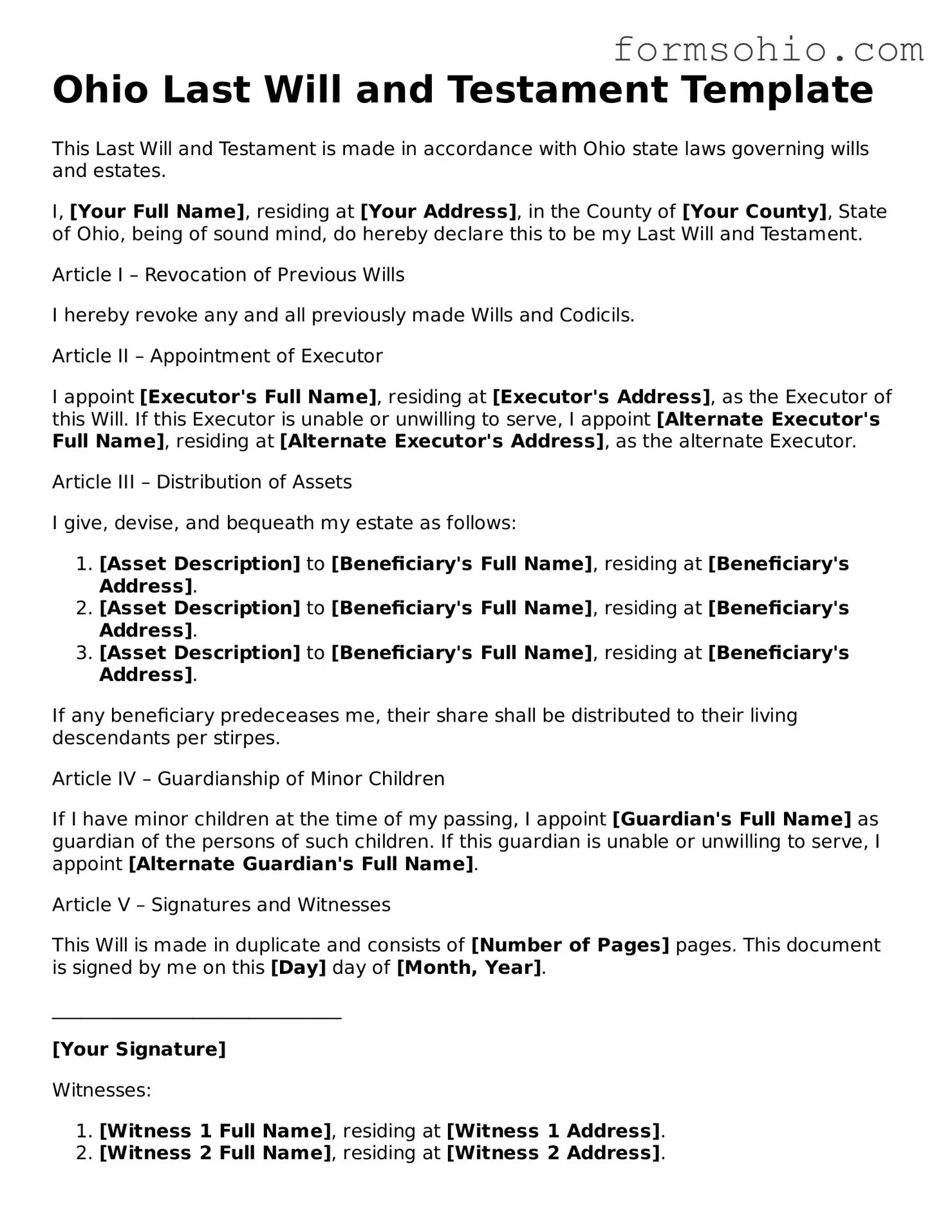Printable Last Will and Testament Template for the State of Ohio
The Ohio Last Will and Testament form is a legal document that outlines an individual's wishes regarding the distribution of their assets after death. This form ensures that a person's estate is handled according to their preferences, providing clarity and direction for their heirs. Understanding how to properly create and execute this document is essential for anyone looking to secure their legacy.
Get This Document Online

Printable Last Will and Testament Template for the State of Ohio
Get This Document Online
Complete this form efficiently and quickly
Complete Last Will and Testament online without printing hassles.
Get This Document Online
or
Free PDF File
